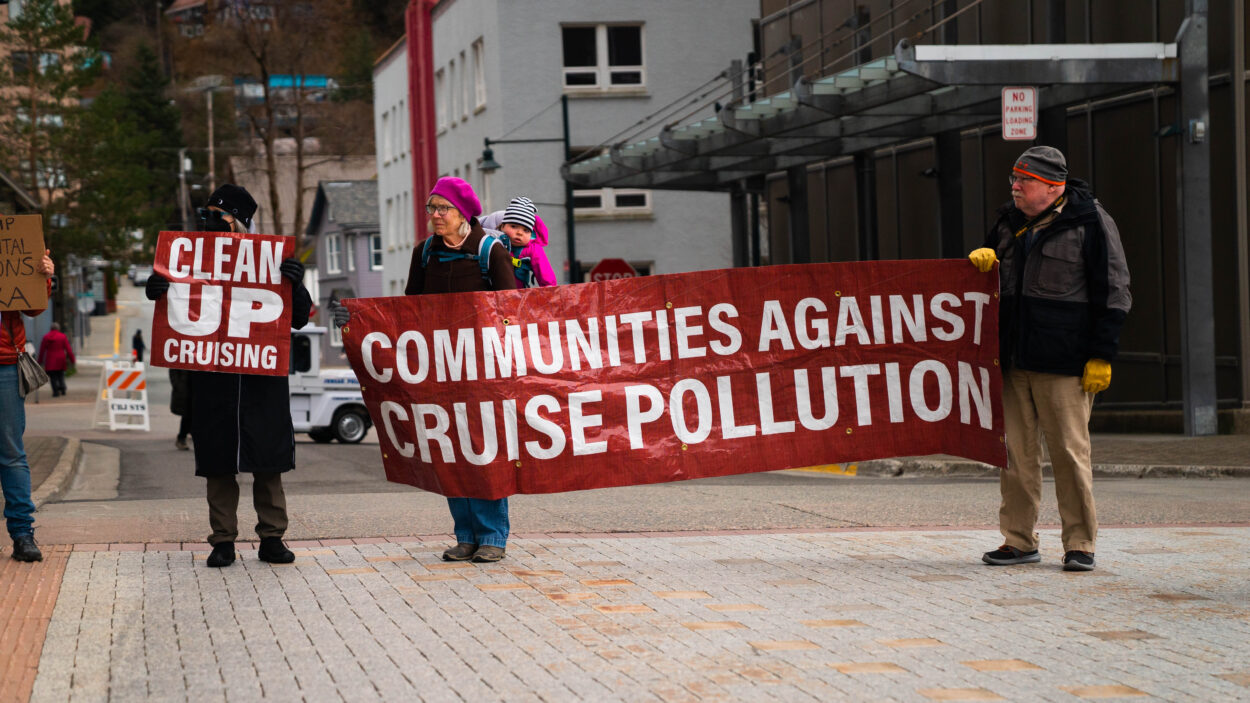
Two conservation groups are suing the Environmental Protection Agency over its alleged failure to finalize standards to protect U.S. waterways from harmful vessel discharges, including those from cruise ships.
In a complaint filed in February, Friends of the Earth and the Center for Biological Diversity say that the 2018 Vessel Incidental Discharge Act required the EPA to develop standards for discharges from ships.
The lawsuit seeks an injunction that would require the EPA to issue those rules.
Much of the lawsuit focuses on the ballast water that ships take on to provide stability. Friends of the Earth Oceans and Vessels Program Director Marcie Keever says that when ships take on water in one place and discharge it in another, that can help spread invasive species and diseases.
“Unless you have treatment to a level which gets rid of these invasive species, when your ship exchanges ballast water, … it’s an incredible risk just from invasive species alone, let alone the pathogens you might encounter from ships coming from all over the world into our waters,” Keever said.
An EPA spokesperson declined to comment on the pending litigation.
In their lawsuit, the conservation groups say invasive species alone cause more than $9 billion in damage each year to infrastructure for public water supplies, industry and power plants.
But ballast water is only one focus of the lawsuit. Keever says the groups are also concerned about discharges from scrubbers that reduce ships’ air pollution.
“The biggest rise in wastewater pollution that we’ve seen over the last several years is exhaust gas scrubber wastewater, which is, basically, the wastewater generated when you use a wet scrubber to scrub your smokestack to comply with international rules for cleaner fuel,” Keever said.
A CoastAlaska investigation published last year uncovered dozens of reports from independent cruise ship monitors alerting state authorities to foamy discharges from ships operated by Carnival Corp. and subsidiaries like Holland America and Princess. Keever says those discharges can harm marine life and those that depend on it for sustenance.
“Essentially, what they’ve done is converted air pollution into water pollution,” Keever said.
Lawyers for the conservation groups and the EPA are due to appear before U.S. District Judge William Orrick in the Northern District of California in mid-May.





